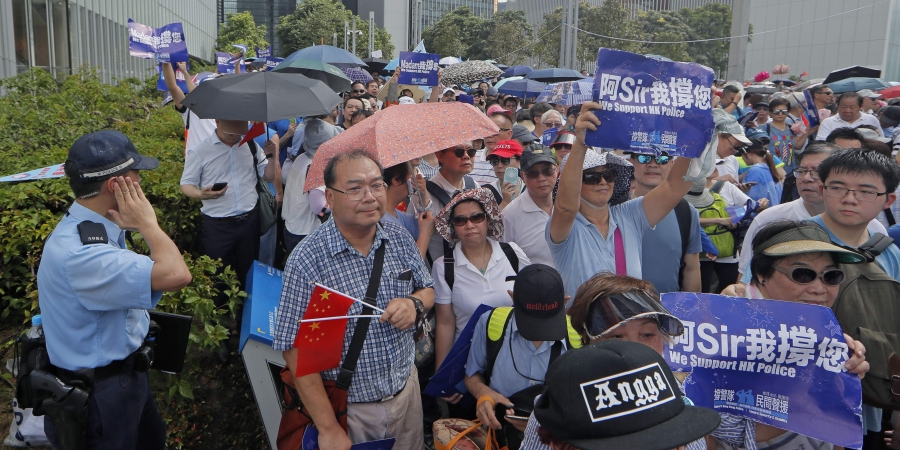Flip over when you finish
From shaing tai, via a group on Facebook, photograph taken at the New Otani Inn in Tokyo:
Read the rest of this entry »
From shaing tai, via a group on Facebook, photograph taken at the New Otani Inn in Tokyo:
Read the rest of this entry »
[This is a guest post by Brendan O'Kane]
Like pretty much everyone else I know, I’ve been following the news out of Hong Kong with a mixture of hope and admiration and absolute dread. I was looking at reports from yesterday’s rally in support of the police when something caught my eye: the sign text in this image:

(Source)
Read the rest of this entry »
[This is a guest post by Nathan Hopson]
I just came across perhaps the strangest kanji compound in the entire 20+ years since I started learning Japanese:
御御御付 (おみおつけ omiotsuke)
Bottom line: it's miso soup.
Read the rest of this entry »
Face to face, most students greet me as "Professor Mair", a few as "Dr. Mair". In e-mails and other written communications, they nearly all address me with "Dear Prof. Mair", "Hello Prof. Mair", or "Hi Prof. Mair", all of which sound natural and normal. I nearly fell off my chair when a female student from China recently sent me an e-mail that began simply "Victor". A few weeks later, I was stunned when she sent me another e-mail that began even more abruptly with just "Mair". This particular student's English otherwise is quite good, so I really don't know what's going on with her.
Read the rest of this entry »
The following article on an Australian website has a slip-up in the handling of an honorific in Indonesian / Javanese:
"Official Indonesian documentation has verified Mbah Gotho was born in 1870, making him the oldest person in the world" (SBS News, 8/31/16)
—–
At the reported age of 145, Mbah Gotho from the Indonesian island of Java could be the oldest person on the planet but he is not interested in celebrating.
“I only want to die,” he told Indonesian television station Liputan 6 in August in Sragen in Central Java.
… Mr Mbah said he has had a tombstone ready since 1992.
Read the rest of this entry »
Anyone who has studied more than a year of Japanese will have a sense of the elaborate system of honorifics employed in the language. But there's a very high level of honorific speech that not even advanced students are required to learn, viz., the language used exclusively by the imperial family.
Last month, there was an article in The Daily Beast about MacArthur's translator, George Kisaki, a nisei (second generation Japanese):
Read the rest of this entry »
Hiroshi Kumamoto received this envelope, where someone tried to translate "Herr" into Japanese and went wrong:
Read the rest of this entry »
Kendall Willets had long ago noticed that Korean honorifics show up disproportionately in commercial settings, but this article brought up something new. The -si- 시 infix is only supposed to apply to the verb if the subject has higher status, but in service settings it's expanding to everything, including coffee.
The big LOL sentence for me, was when the Coffee 알바 (short for 아르바이트, “Arbeit(work)” from the Japanese-German arubaito/baito which denotes part-time workers in Korea) in the video says,
그 사물 들에게 우리는 존경의 마음을 억누를 수 없습니다. 커피 나오셨습니다. 커피가 제 시급보다 더 비싸거든요.
roughly translated as:
“We cannot control the boundless respect we have for these things. “Here’s your coffee.” (this is the kind of sentence they are talking about, which to my ears, can only be translated into English as (with a little bit of exaggeration) “His Coffeeness has graced us with his presence.” Then she goes on to say “It’s because (a cup of) coffee is more expensive than my hourly wage.”
[VHM: sic (punctuation and all); emphasis in the original]
Read the rest of this entry »